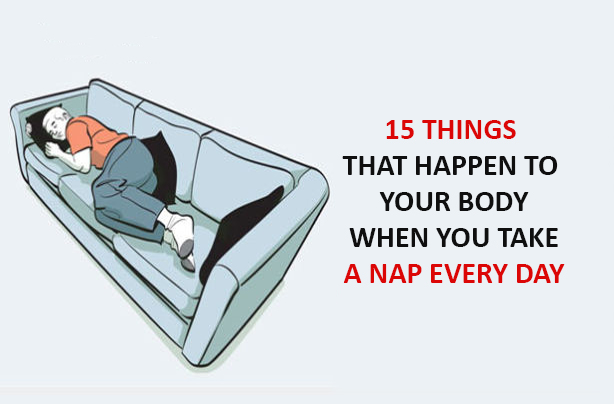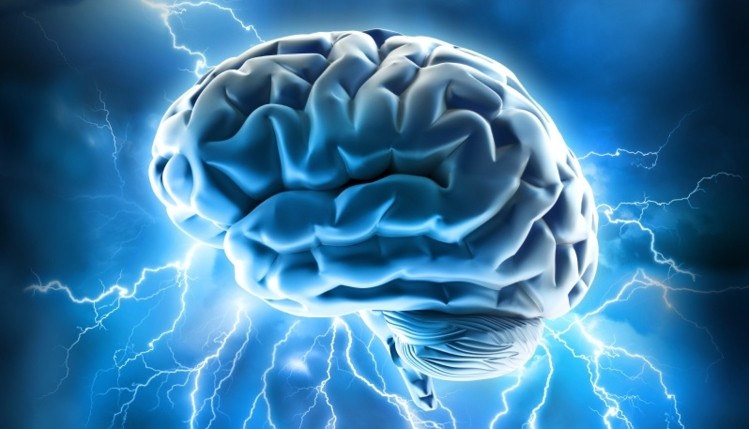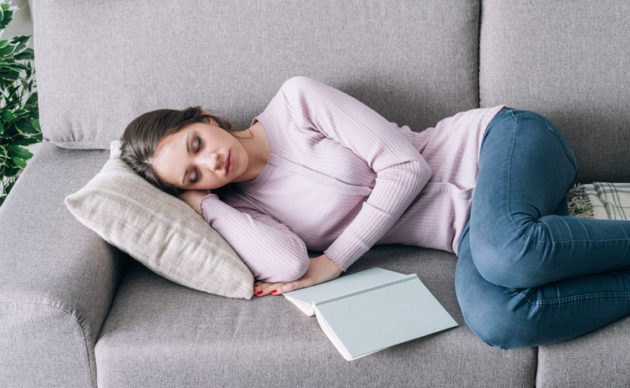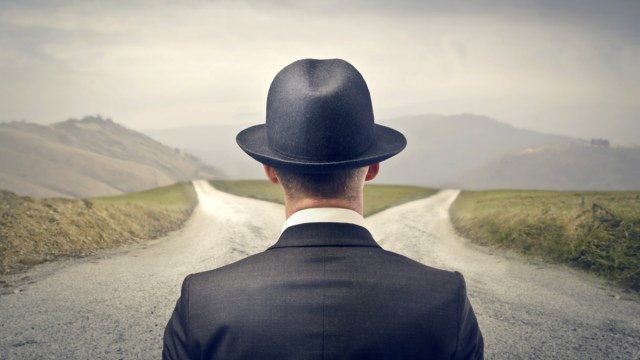15 Things That Will Happen To Your Body If You Take A Nap Every Day
“More than 85 percent of mammalian species are polyphasic sleepers, meaning that they sleep for short periods throughout the day.” – National Sleep Foundation
Our average day is divided into two parts – sleeping and being awake. The statistics show that 85% of all the mammals (of course, including humans) belong in this group that sleeps also throughout the day and takes naps that are short amount of time.

Humans are perhaps the only species of the mammals that don’t get enough sleep of the recommended 8 hours per night, and that is about 40% of the people. Napping won’t solve our sleep deficiency problem but will definitely help us being productive for the day and balance our energy levels.
Naps are divided into 3 categories: emergency, habitual, and prepatory.
Emergency napping are those when you come home really tired and you fall asleep immediately without even noticing. This is no way a healthy nap.
Habitual napping are the ones when you taught your body to take rests at the same time of day each day, for example every day resting for 40 minutes starting at 4 pm.
Preparatory naps are the naps in which we prepare our body to rest before being set for a long period without sleep, example when we travel and we are the drivers.
The National Sleep Foundation (NSF) recommends taking 20-30 minute naps for a boost in performance and alertness. Any period of sleep between 30- 60 minutes will cause sleep inertia or “groggy feeling” post wakeup.
The Benefits Of Napping
1. You are happier

In the period of 20-30 minutes people will feel rested, boosted and happier when they wake up. After 30 minutes the feeling is gone.
2. You can beat the slump
Our circadian cycle feels a “slump” around 3 p.m. – an evolutionary hiccup. Napping is an efficient way to beat this slump, according to Harvard University.
3. You make fewer mistakes
Napping improves alertness, work performance, concentration, reduces mistakes and avoids accidents.
4. You’ll perform better
In a study conducted by NASA, the pilots and astronauts who took 40 minutes of nap experienced a big improvement in their performance and alertness: 34% and 100%.
5. You get a memory boost

Researchers at Saarland University in Germany found that taking naps in amount of 45-60 minutes improved their memory 500 percent. Students, pay attention to this one!
6. You’re more creative
Researchers show that the right side of the brain where creativity takes place is actively communicating with himself.
7. You heart is healthier
A research study done by the Harvard School of Public Health and the University of Athens Medical School (Greece) people who nap for 30 minutes have lower risk of heart diseases, about 37% lowered.
8. You’ll crave less junk food
According to a study by UC Berkeley, a lack of sleep impairs the brain’s prefrontal cortex, or PFC, which is responsible for decision making and withstanding impulse. Which in results, you get decisions to crave more junk food.
9. You feel fuller
When you’re asleep the body produces less of the hunger hormone called gherlin. A different study demonstrates a connection between poor sleep patterns, excess levels of gherlin, and higher rates of obesity. Researchers suggest that regular napping can increase feelings of fullness.

10. You’ll bicker less
People that have poor sleeping patterns tend to be more sensitive and in fact, argue more compared to those that are getting their full amount of night time sleep and day naps.
11. You’ll decrease a risk of injury
Per the Centers for Disease Control and Prevention (CDC) and the National Highway Traffic Safety Administration (NHTSA), people who happened to suffer from a driving accident such as motorcycle crashing, car crashes or different medical incident were sleep deprived.
12. You are more productive
Cornell University psychologist James Mass created the term – “power nap” which according to him that’s a practice that’s related to embracing and business productiveness. Why? Because the results have shown that naps result in enhanced productivity and performance.
13. You defend against burnout
Per the National Institutes of Health (NIH), napping helps with information overload and brain burnout. NIH also discovered a direct link between napping and enhanced cognitive performance.
14. You are helping your workplace
Nike and Deloitte Consulting reward employees for adding a mid-day nap to their to-do lists. Nike, Deloitte, and other companies recognize that today’s employees while working more, are getting less sleep. “Powering through” work by forgoing rest and working longer hours “isn’t good for the individual or the organization,” says UNC behavior professor Michael Christian.
15. You have better judgment

The frontal lobe is in charge in all of the things that are related to decisions making, so lack of sleep negatively affects the work of this area which may lead to worse decisions and decisions that were made without control of the thought. Give yourself a rest so you don’t hate yourself later.

#3 – typo “fever” should be fewer
3. You make FEWER mistakes, not FEVER mistakes. Someone needs a nap…
I love this article and I have said for a long time the same thing. But no one believes me they just think I am lazy. I’m going to show everyone this xxxxxx
Not buying it! Not everything is true in this article because it’s too general. Benefits of napping may work for some people but unfortunately not for me. If I’m lucky enough to have the time to take a nap, I usually wake up with brain fog, groggy and hungry and don’t feel rested at all.